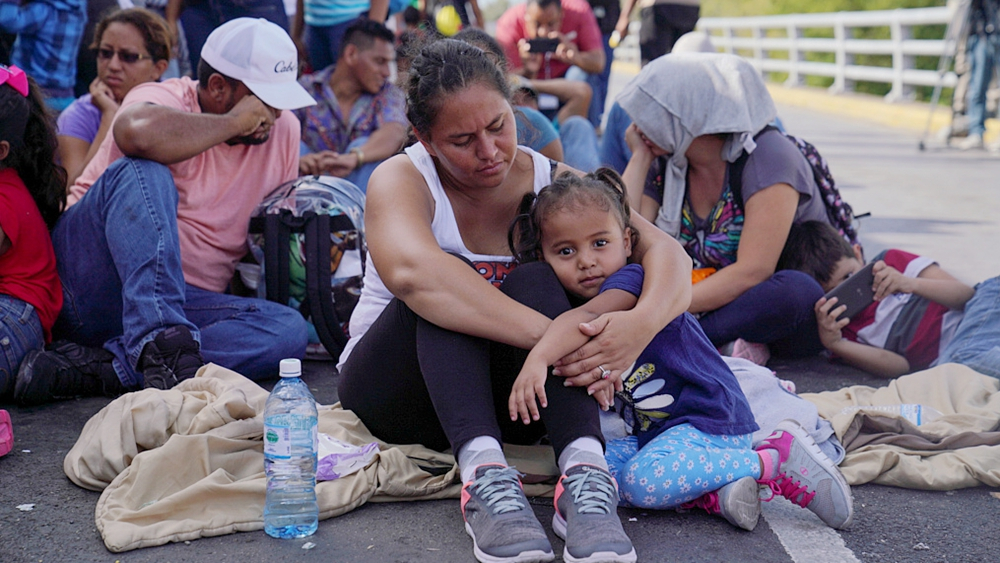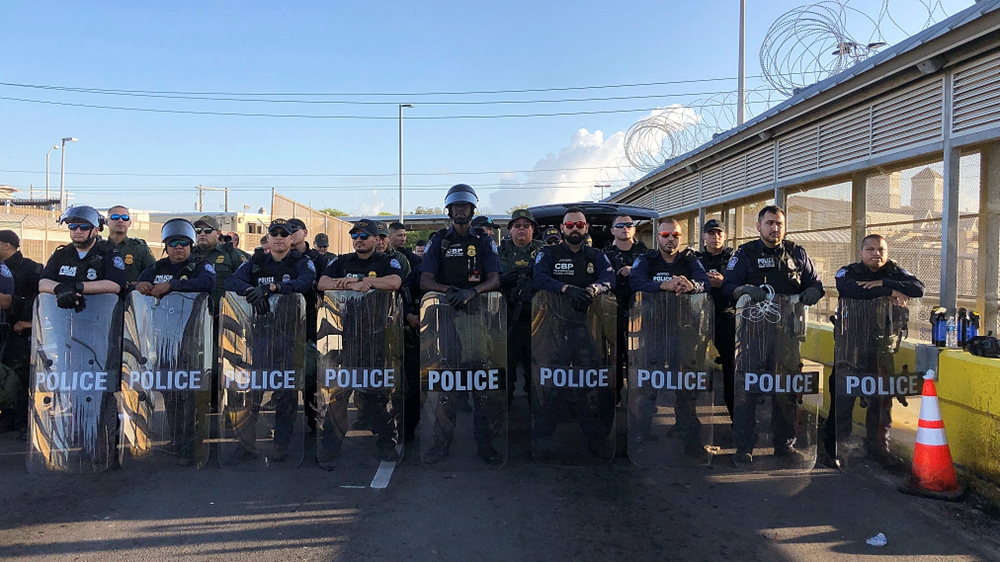
A woman from Honduras holds her three-year-old daughter as she sits with a group who returned to Mexico to await their U.S. asylum hearing, as they block the Puerta Mexico international border crossing bridge to demand quickness in their asylum process in Matamoros, October 10, 2019. /VCG Photo
A woman from Honduras holds her three-year-old daughter as she sits with a group who returned to Mexico to await their U.S. asylum hearing, as they block the Puerta Mexico international border crossing bridge to demand quickness in their asylum process in Matamoros, October 10, 2019. /VCG Photo
Migrants seeking asylum in the United States who are camped in a dangerous Mexican border town occupied a bridge to Brownsville, Texas on Thursday, leading U.S. authorities to close the crossing, witnesses and authorities said.
Hundreds of the migrants have been sleeping for weeks on the end of the bridge in Matamoros, Mexico, a city known for gang violence and for cartels that control human trafficking.
Many of those living in tents or on the sidewalk in a plaza abutting the bridge are awaiting court dates for hearings in the United States weeks or months later under a U.S. policy called the Migrant Protection Protocols (MPP).
Some migrants said they were trying to cross as a group into the United States, and were frustrated that court dates kept being pushed backwards, leaving them uncertain of how long they would be stuck in Mexico.
"We want to argue to cross over - we didn't ask to be in Mexico, they sent us here unjustly," said a man who declined to give his name. He said he had a court date in the United States.

U.S. Customs and Border Protection police stand guard as migrants block the Puerta Mexico international border crossing bridge in Matamoros, October 10, 2019. /VCG Photo
U.S. Customs and Border Protection police stand guard as migrants block the Puerta Mexico international border crossing bridge in Matamoros, October 10, 2019. /VCG Photo
Matamoros mayor Mario Lopez and a Mexican migration official pleaded with asylum-seekers to clear the blockage.
A Honduran man responded by indicating the lumps and rash on the throat of his young daughter, which he attributed to unhygienic conditions in the camp.
He said Mexican officials encouraged those in the camp to take a government paid-for bus back to the border with Guatemala, instead of pursuing their U.S. asylum claims. He said this was not a safe option for his family.
"I'd have to go back to Honduras. And you know the news there. If we go back to Honduras, in one day, in 24 hours, we're dead."
Tens of thousands of Hondurans have fled gang violence and criminality in the country, whose murder rate ranks among the world's highest.
More than 51,000 migrants, mostly asylum seekers, have been returned to Mexico under MPP. At least 8,000 have been sent to Matamoros, a border city in crime-wracked Taumaulipas state, since the policy was expanded in July from other parts of the U.S.-Mexico border.
Their sense of uncertainty comes amid news of shifting U.S. policies. The U.S. Supreme Court issued a decision last month that would allow the U.S. government to deny asylum to people who have passed through a third country, such as Mexico, and not requested refuge there first.
Source(s): Reuters